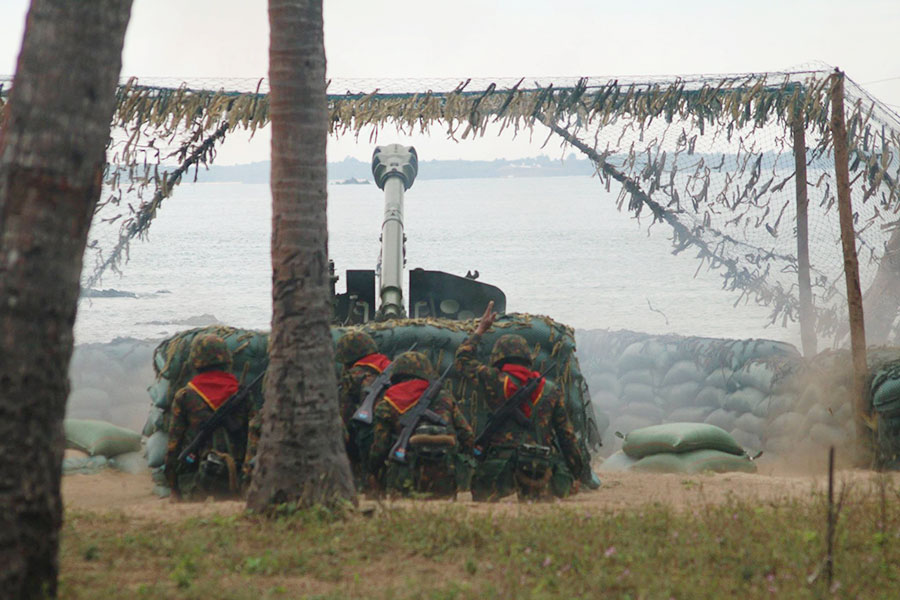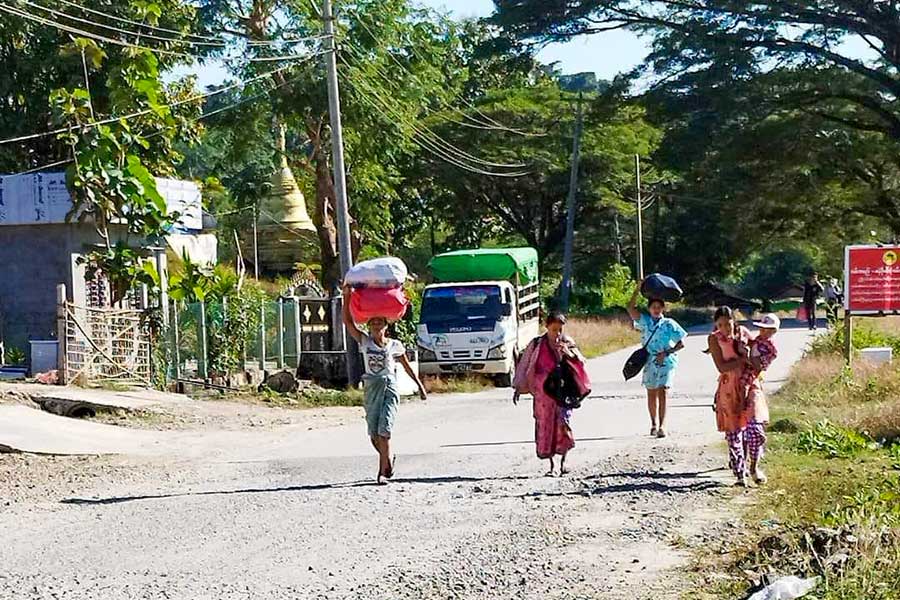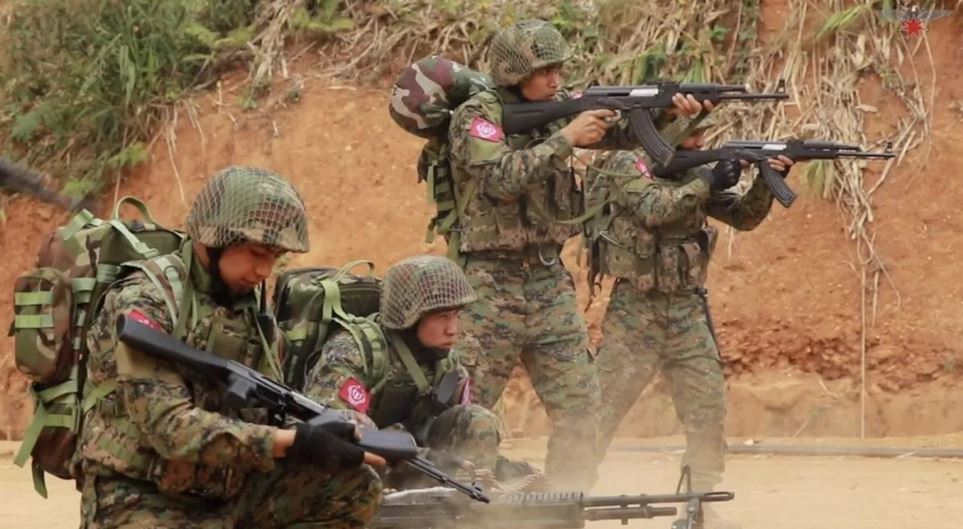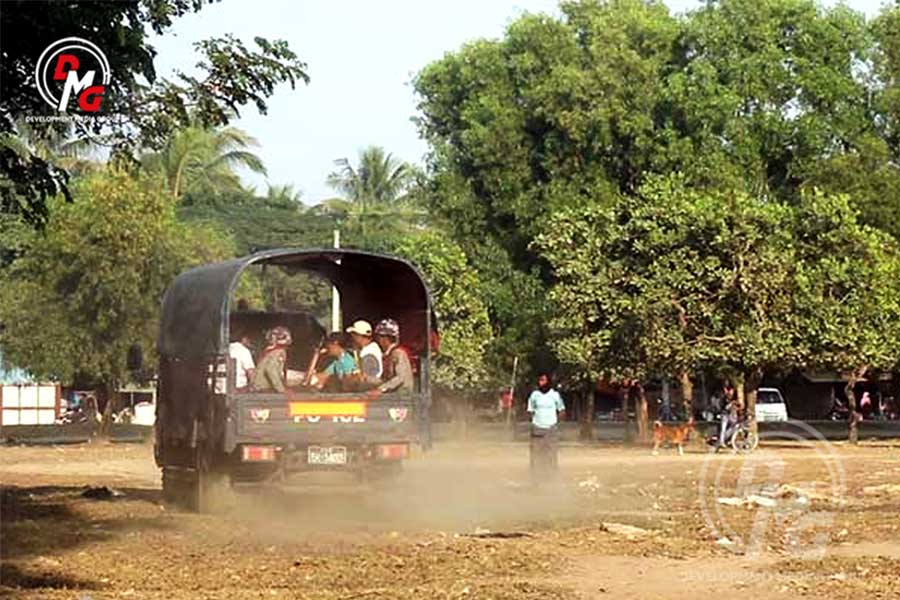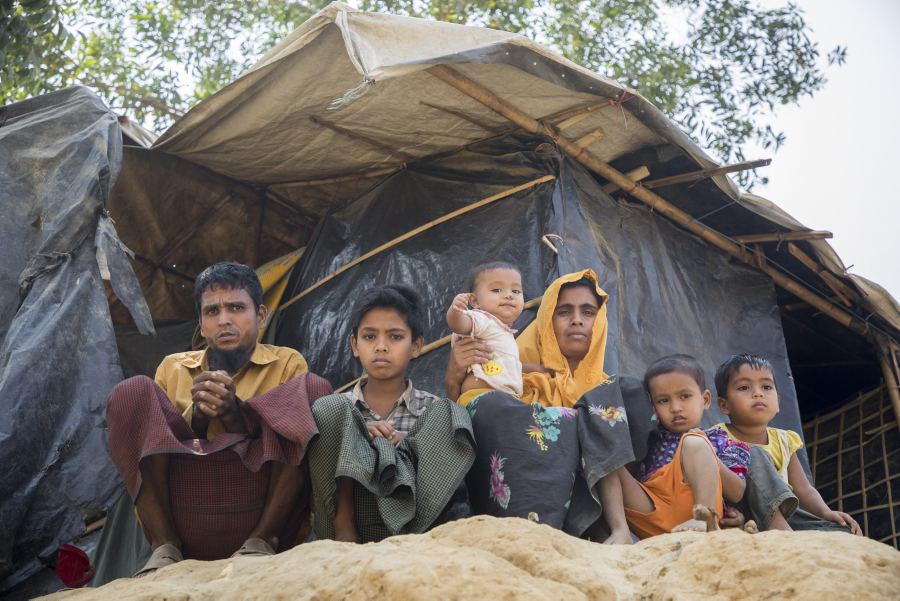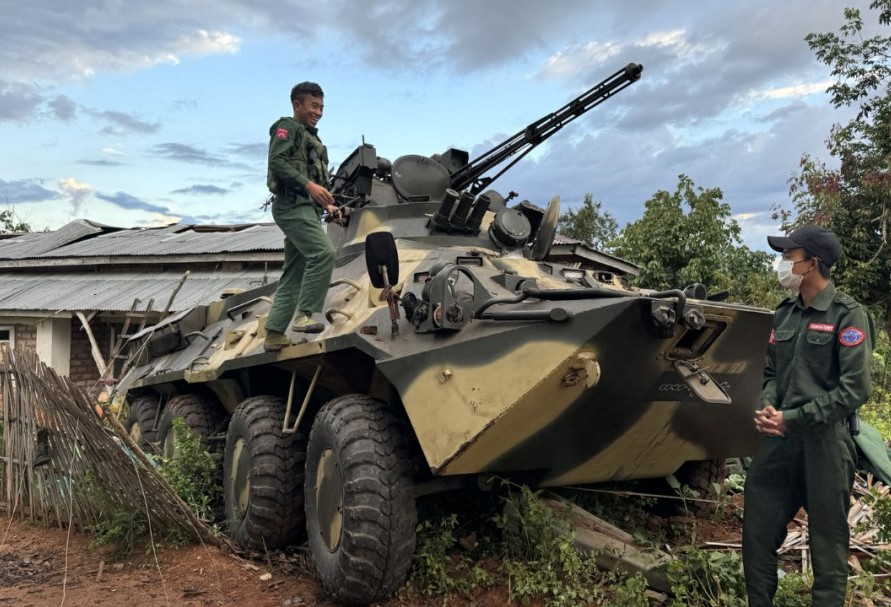Government-built Nay Pu Khan IDP camp in need of food and clothes
The Nay Pu Khan camp for internally displaced people (IDPs) in Kyauktaw town, Arakan State, is in need of food and clothes, according to residents of the government-built camp.
03 Sep 2021
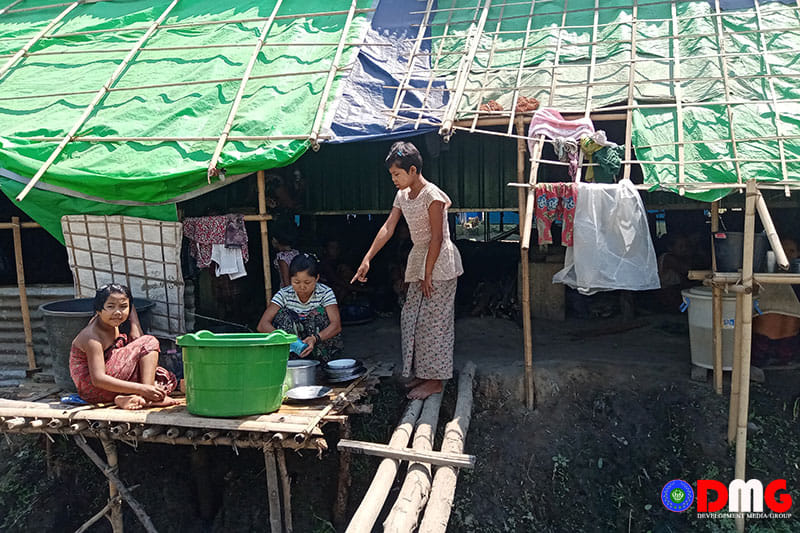
DMG Newsroom
3 September 2021, Kyauktaw
The Nay Pu Khan camp for internally displaced people (IDPs) in Kyauktaw town, Arakan State, is in need of food and clothes, according to residents of the government-built camp.
The government has provided 60 tins of rice per camp resident each month, but that is not enough, said U Maung Aye Soe, manager of the camp, who added that IDPs there do not receive donations from NGOs, INGOs or private donors.
“Just rice is not sufficient for the IDPs. The families with big numbers face more difficulties. As they do not have money, they have to sell their rice to buy other items they require. Sometimes, they have to eat rice with green chili or salt only,” he said.
The IDP camp is provided with electricity from the state-owned Electricity Supply Enterprise, and runs up an electricity bill that averages more than K200,000 per month. The IDPs have to pay the power bill by any means they have available or risk having the electricity supply cut off, the camp manager said.
What’s more, the IDP camp has not received provisions from the World Food Programme for some three months.
“Although the government takes responsibility for the IDPs, we are not provided with enough goods. We need mosquito nets and clothes. The food we can eat is just to ward off starvation. We are facing livelihood difficulties as we are not provided supplies like other camps, while we cannot work during the Covid-19 outbreak,” said U Maung Oo, an IDP.
The Nay Pu Khan IDP camp was established by the previous government. More than 2,000 people from 10 villages in Kyauktaw Township, including Tinma and Pyaing Taing villages, are sheltering at the camp.
U Shwe Baw Sein, chair of the Rakhine Ethnics Congress, said that other IDP camps might face even more difficulties, given that the IDP camp built by the government is facing such livelihood woes.
“There is no doubt that other, informal IDP camps might face more difficulties as the IDP camp that the government recognises as a formal IDP camp is facing difficulty with livelihoods. Those who are taking responsibility for the IDPs need to provide sufficiently at this moment,” he said.
The ongoing third wave of Covid-19 has caused major economic disruption for tens of millions of people in Myanmar. Stay-at-home orders and other public health restrictions have had far-reaching impacts for most people, from day labourers and shopkeepers to hoteliers and trade merchants, while IDPs have seen donations cut back, and opportunities to leave the camps for work have dwindled.

